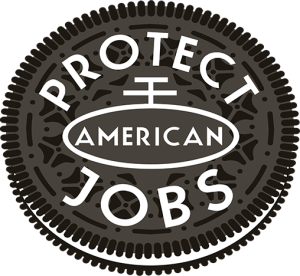At midnight Monday, the local contract covering the bakers union employees at the Oreo plant expired, along with six other local contracts at other facilities. For now, at least, employees continue to work as usual. Talks fell apart last week when the two sides couldn’t find a compromise on retirement and health benefits. Negotiations could continue next week.
Enter the Bernie Sanders campaign? Apparently so. On Wednesday morning, Larry Cohen, a longtime labor leader who now works for the Sanders campaign, is expected to deliver remarks alongside members of the Bakery, Confectionery, Tobacco Workers and Grain Millers International Union Local 300 at a press conference across the street from the plant, the union announced Tuesday.
Mondelez executives have stressed that the investment-related decision is separate from ongoing contract negotiations.
The pension plan covering the BCTGM employees is one of the major sticking points of the negotiations. Mondelez executives say the current pension fund will be insolvent within 17 years and hope to shift employees from a defined benefit retirement plan to a defined contribution plan.
BCTGM International Vice President Jethro Head characterized the company’s proposal to replace the current pension plan as an “extremely risky and unreliable ‘savings account,'” in an open letter to members last week.
Laurie Guzzinati, Mondelez spokeswoman, said the company hopes to continue bargaining for a contract for its employees but has “business continuity plans” in place should a strike occur. “We would determine what is necessary to keep the business running,” she said.
The Sanders campaign’s planned appearance with the bakers union Wednesday won’t be the first time Mondelez and the future of the Chicago plant has caught the attention of politicians. GOP front-runner Donald Trump said in August, and several times since then, that he intends to boycott Oreo cookies because of the planned move of operations to Mexico.
In response, Mondelez executives have said Oreos will continue to be made in other American facilities — just not in Chicago.
